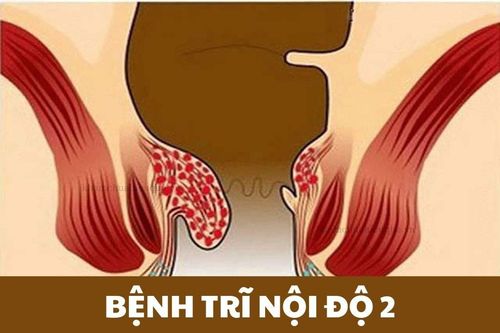What medicine to take for anal fissures is a question of many people, because this condition is currently one of the common diseases that are easy to encounter in people with frequent constipation. Taking medicine is one of the methods to treat anal fissures when the disease is in the early stages. So what medicine should people with anal fissures take?
1. What is anal fissure?
Anal fissures are a condition in which the anal mucosa has one to many small tears. After defecation, the patient often feels anal pain and may be accompanied by bleeding.
Anal fissures include the following 2 stages:
Acute: Small and shallow fissures, mild inflammation. This condition usually lasts no more than 6 weeks, but affects daily activities and makes the patient feel painful.
Chronic: The fissure is wider and deeper, which can last more than 6 weeks. With chronic anal fissures, the patient feels tired because of having to endure anal spasms for a long time.
Anal fissures can occur in both women and men of any age, but are most common in infants, young children and middle-aged adults who are prone to constipation.
2. Why do anal fissures occur?
The specific cause of anal fissures has not yet been determined, however, doctors believe that constipation causes the patient to strain when defecating or stools that are too hard can damage the anal canal. When the muscles in the anus are tense due to spasms, blood flow is reduced and the anal fissure takes longer to heal. Irritating bowel movements can also cause the fissure to recur or become worse.
Here are some causes that increase the risk of anal fissures:
- Constipation, difficulty defecating
- Increased pelvic pressure due to pregnancy or childbirth
- Digestive diseases such as colitis, Crohn's disease, bowel cancer
- Sexually transmitted infections or skin infections, skin diseases such as psoriasis
- Patients taking medications to treat certain diseases or opioid
- Anal trauma due to surgery or sexual intercourse
3. What medicine should be taken for anal fissures?
Anal fissures need to be treated properly and promptly so that the disease does not progress to a chronic state. Therefore, when experiencing pain in the anus accompanied by bleeding, the patient should promptly see a doctor or medical facility.
Treatment of anal fissures often combines both internal medicine and surgery, however, depending on the condition of the disease, the doctor will prescribe the appropriate treatment method. Usually, internal medicine is prescribed for the early stages of anal fissures, when the fissure is still small and shallow, the patient is mainly given medication to heal the anal fissure, including:
Stool softeners to treat anal fissures by reducing constipation, making bowel movements easier such as Bisacodyl, Duphalac, ...
Pain relievers to reduce pain and burning in the anus, especially after defecation. Pain relievers often have the main ingredient Paracetamol, such as Anusol-Hc, Lidocaine, or topical medications that also have pain-relieving effects such as zinc oxide.
Antibiotics to reduce inflammation, reduce infection, swelling, pain and discharge in the anus) such as Cefadroxil, Cefazolin, Cefixim, Cephalexin.
Drugs for anal fissure treatment help dilate veins, while increasing blood circulation in the anus to heal wounds such as Anusol-Hc, Nitroglycerin, Proctolog, Tetracycline, ...
Along with treating anal fissures with medication, patients need to keep the anal area clean, and have a scientific diet and lifestyle such as drinking plenty of water, eating lots of fiber, limiting spicy and greasy foods, for effective treatment.
4. Surgical treatment of anal fissures
When the disease is in the chronic stage, recurring many times, the fissures are deep and numerous leading to infection and dangerous complications, surgical treatment will be indicated.
Surgical treatment of anal fissures includes the following methods:
Surgery to cut open the muscles inside the anus: To reduce the pressure and tension caused by anal fissures, the doctor performs surgery to cut a small incision inside the sphincter with a length corresponding to the fissure. This is the main method indicated in the treatment of anal fissures.
Tissue excision surgery: The tissues surrounding the anal fissure will be completely removed so that the wound can heal. Usually, this method is combined with medical treatment of anal fissures or surgery to cut open the internal sphincter.
Anal dilation surgery: This surgery is performed to widen or loosen the anal sphincter to prevent the anus from being narrowed by fissures. This procedure is often indicated for chronic anal fissures and patients with repeated recurrences.
Medication is a treatment method for anal fissures when the disease is in the early stages, the fissure is still small and shallow. Medications may include stool softeners, antibiotics, anti-inflammatories or pain relievers.
To arrange an appointment, please call HOTLINE or make your reservation directly HERE. You may also download the MyVinmec app to schedule appointments faster and manage your reservations more conveniently.













